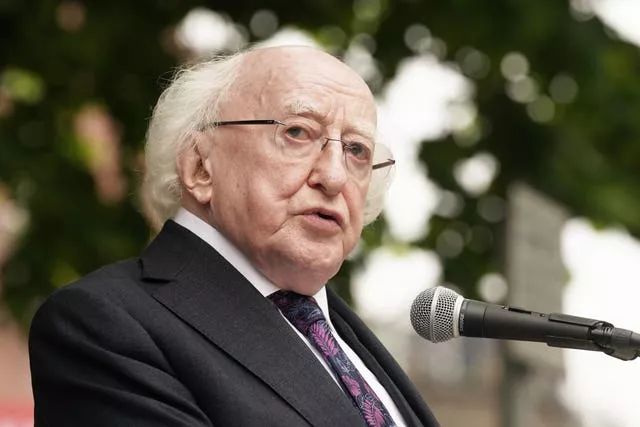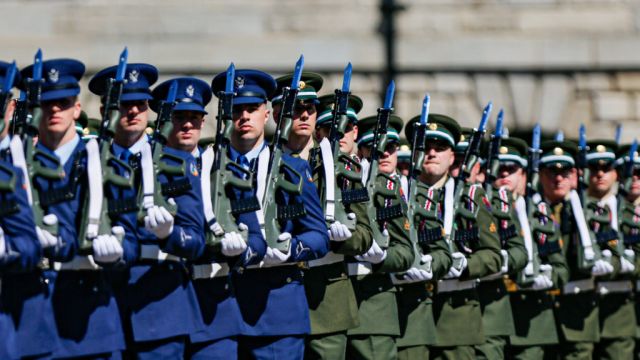President Michael D Higgins has called for a meeting of his advisory body to discuss the constitutionality of the Government’s Defence Bill.
The Council of State will meet on Monday afternoon to discuss whether the Defence (Amendment) Bill 2024 should be referred by the President to the Supreme Court on whether specific provisions are “repugnant to the constitution”.
Mr Higgins intends to ask the council about sections 11 and 24 of the Bill in particular and whether the interference with constitutional rights is disproportionate.
Section 11 prohibits a member of the Permanent Defence Forces from making a public statement or comment in relation to political matters or Government policy while they are in uniform or otherwise identifiable as a member of the Defence Forces, without prior authorisation from their commanding officer.

It would also prohibit them from attending a protest under the same circumstances as well as stop them from canvassing for a political organisation or addressing a meeting of such a society.
While Section 24 would now allow the Defence Forces to associate with the Irish Congress of Trade Unions, it would prohibit associated bodies like ICTU from calling for or encouraging industrial action within the military.
Those who sit on the council include the Taoiseach, Tánaiste, Chief Justice, President of the Court of Appeal, President of the High Court, Ceann Comhairle, Cathaoirleach of the Seanad, and the Attorney General.
It will be the fourth time that Mr Higgins has convened the Council of State to consider a piece of legislation during his time as President.
He previously convened the Council of State on July 29th, 2013, to consider the Protection of Life During Pregnancy Bill 2013, on December 29th, 2015, to consider the International Protection Bill 2015, and on October 11th, 2023, to consider the Judicial Appointments Commission Bill 2022.
Since 1940, the Council of State has been convened to consider the potential referral of 29 previous Bills to the Supreme Court.
Fifteen Bills have been referred to the Supreme Court following such meetings.







